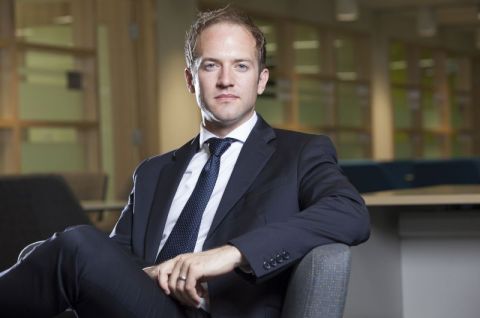
Professor Grégoire Webber’s high level of achievement in academia and in government has not gone unnoticed.
Webber has taught at universities in Canada and the U.K., been widely published, supported multiple branches of government as an advisor, and even co-founded his own not-for-profit to improve the quality of Supreme Court advocacy. He is currently the Canada Research Chair in Public Law and Philosophy of Law at Queen’s, a position that reflects his interdisciplinary view of legal scholarship and teaching.
On September 10, the Royal Society of Canada has announced Webber’s membership in its College of New Scholars, Artists and Scientists.
“I am excited by this happy development and hope to make important contributions to the Royal Society through my membership,” he says.
The Royal Society of Canada (RSC) exists to promote Canadian research and scholarly accomplishment in both of Canada’s official languages, to mentor young scholars and artists, to recognize academic and artistic excellence, and to advise governments, non-governmental organizations and Canadians on matters of public interest.
It was this latter criterion that particularly spoke to Webber who, in his letter to the College, offered to share his expertise in advising governments and promoting research to non-academic audiences with his now fellow RSC members.
“During my years working for the government I learned about the different paces at which academia and the policy world operate,” he says. “Policy-makers need to respond to issues quickly, and their advisors must introduce the essential elements efficiently and present them in a way such that an intelligent person with little time can come to an informed decision.”
Webber’s previous experience with the Trudeau Foundation provides a sort of blueprint for what he hopes to achieve. He aims to help the RSC develop a mentoring-type relationship to guide new academics in sharing their work with the broader community.
Dean Mark Walters, Law’89, praised Webber’s ability to balance profound scholarly insight while remaining a skilled practitioner.
“On behalf of the Faculty of Law, congratulations to Professor Webber on this remarkable achievement,” says Dean Walters. “He has made a truly significant mark in the fields of constitutional law and constitutional theory on both the national and international levels, and he has thus contributed to addressing some of the most pressing questions that dominate our social and political lives today. I can't imagine a more qualified nominee for membership in the College of New Scholars, Artists and Scientists.”
Webber’s nominator, Professor Dwight Newman of the University of Saskatchewan, concurs that it is the diversity of Webber’s abilities that make him a unique and highly valuable addition to the College.
“Grégoire Webber is a highly distinguished scholar who has combined the highest quality of scholarship with public service in various roles in government and other contexts,” he says. “He is a very deserving inductee into the College of New Scholars.”
Webber, one of four Queen’s University researchers elected to the Royal Society of Canada this year, will be inducted at a Royal Society of Canada event on November 22 in Ottawa.
By Phil Gaudreau